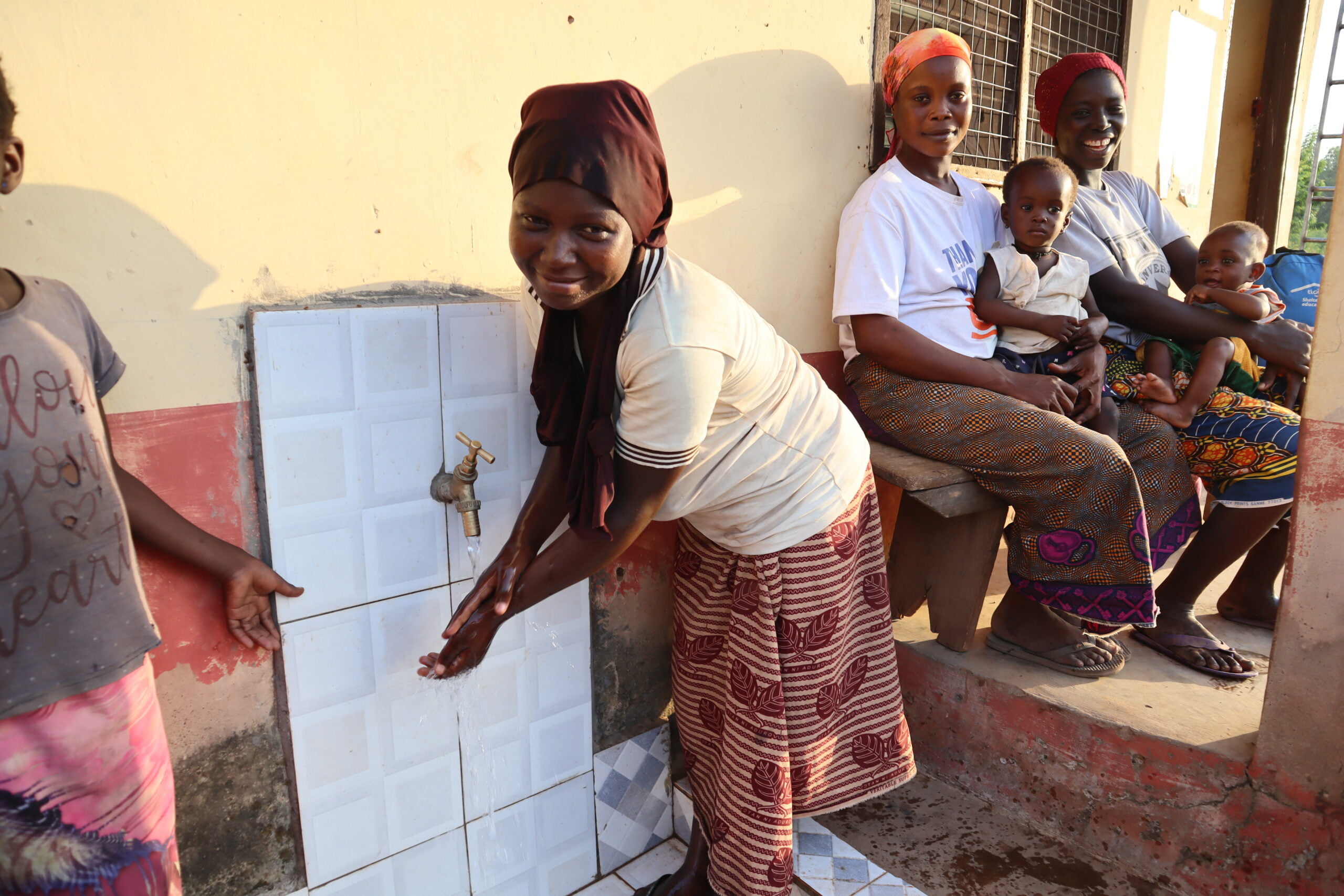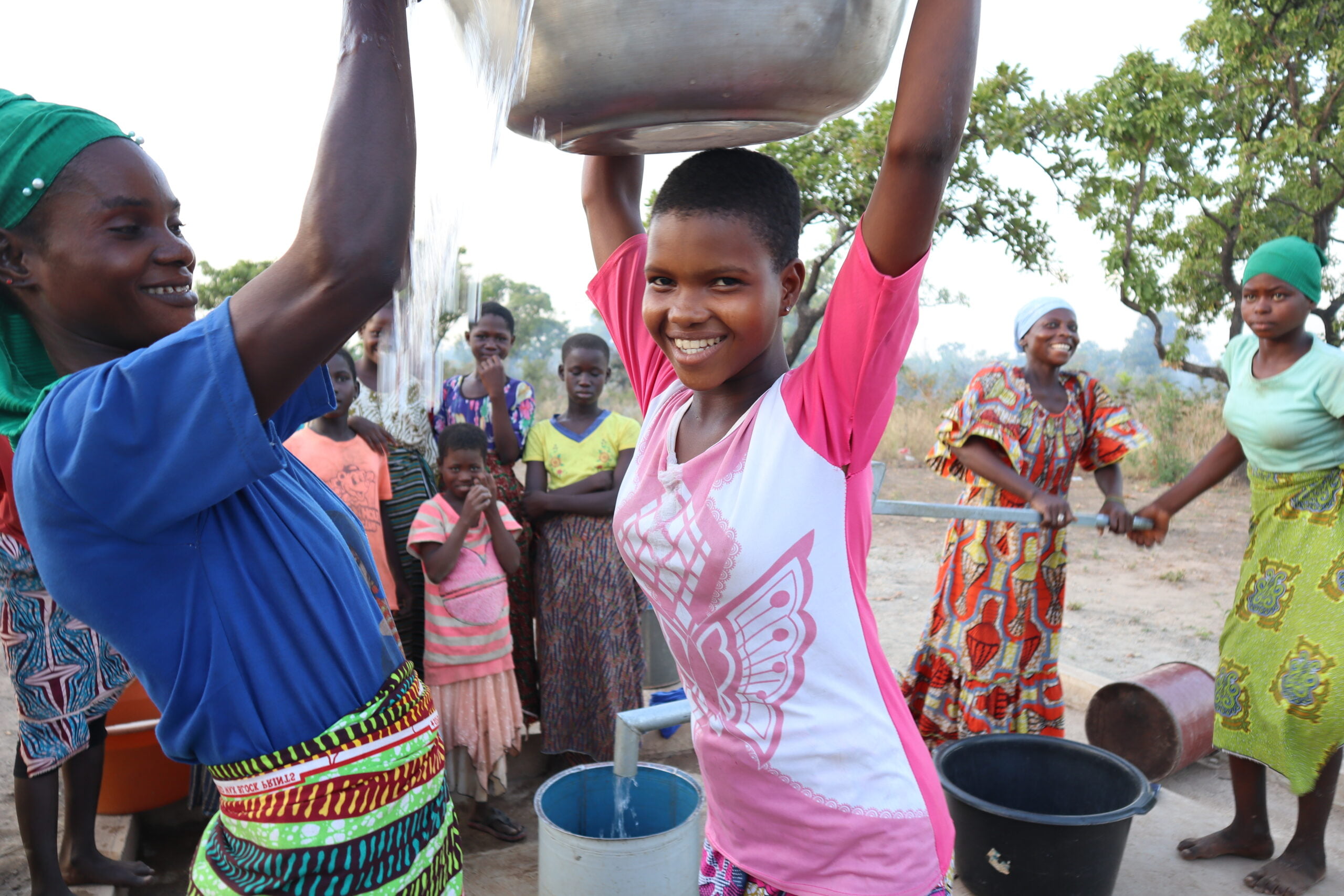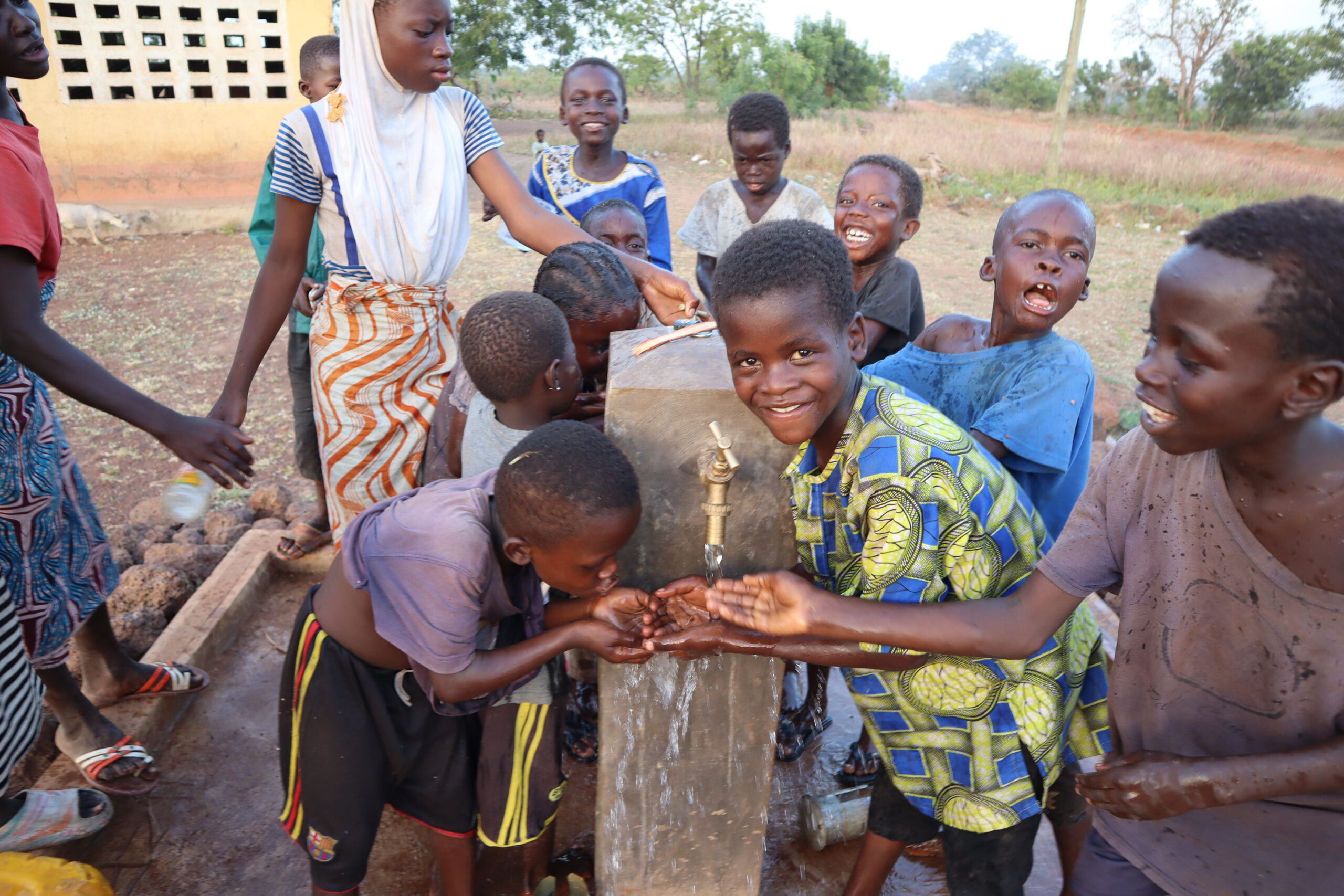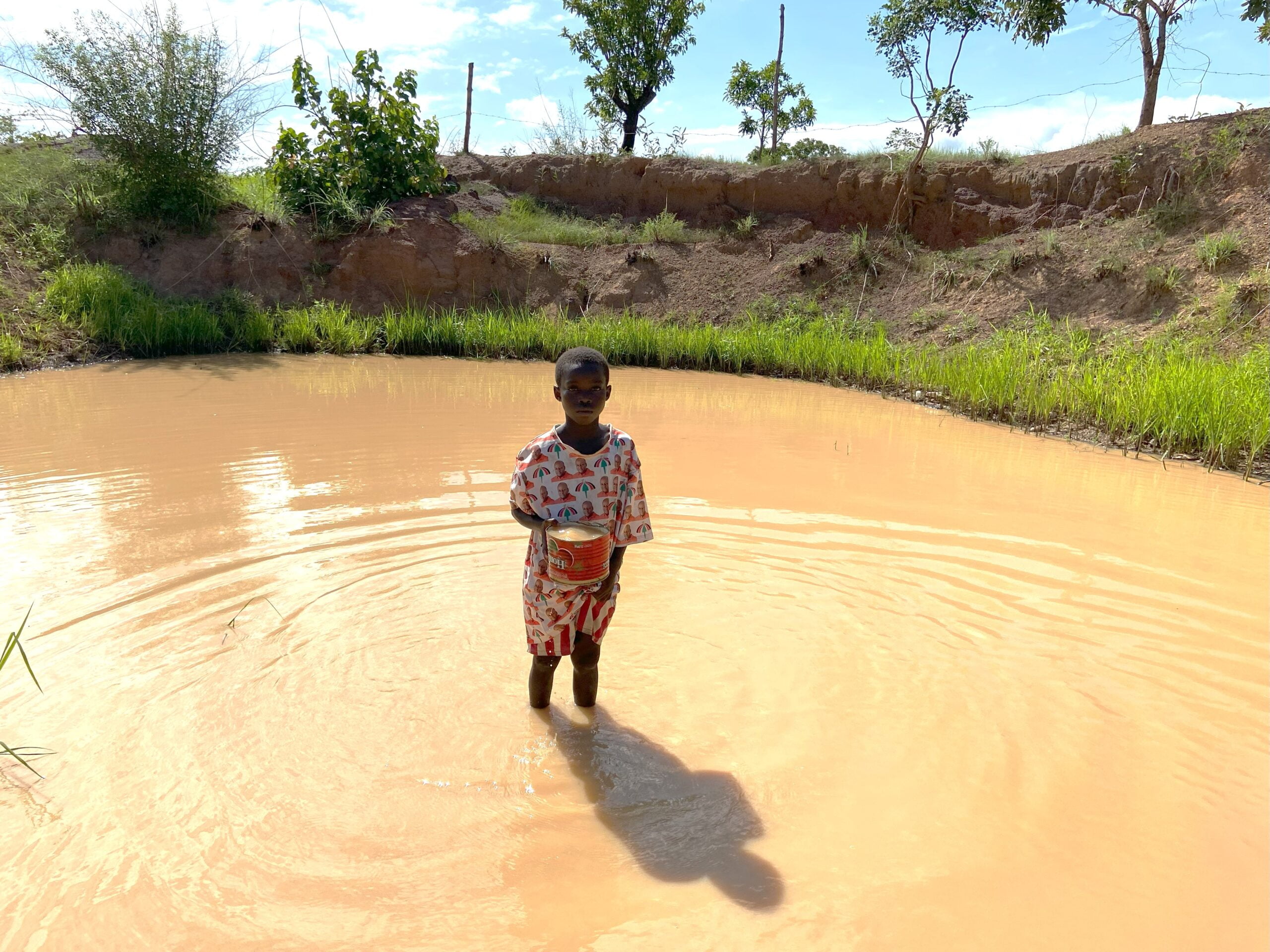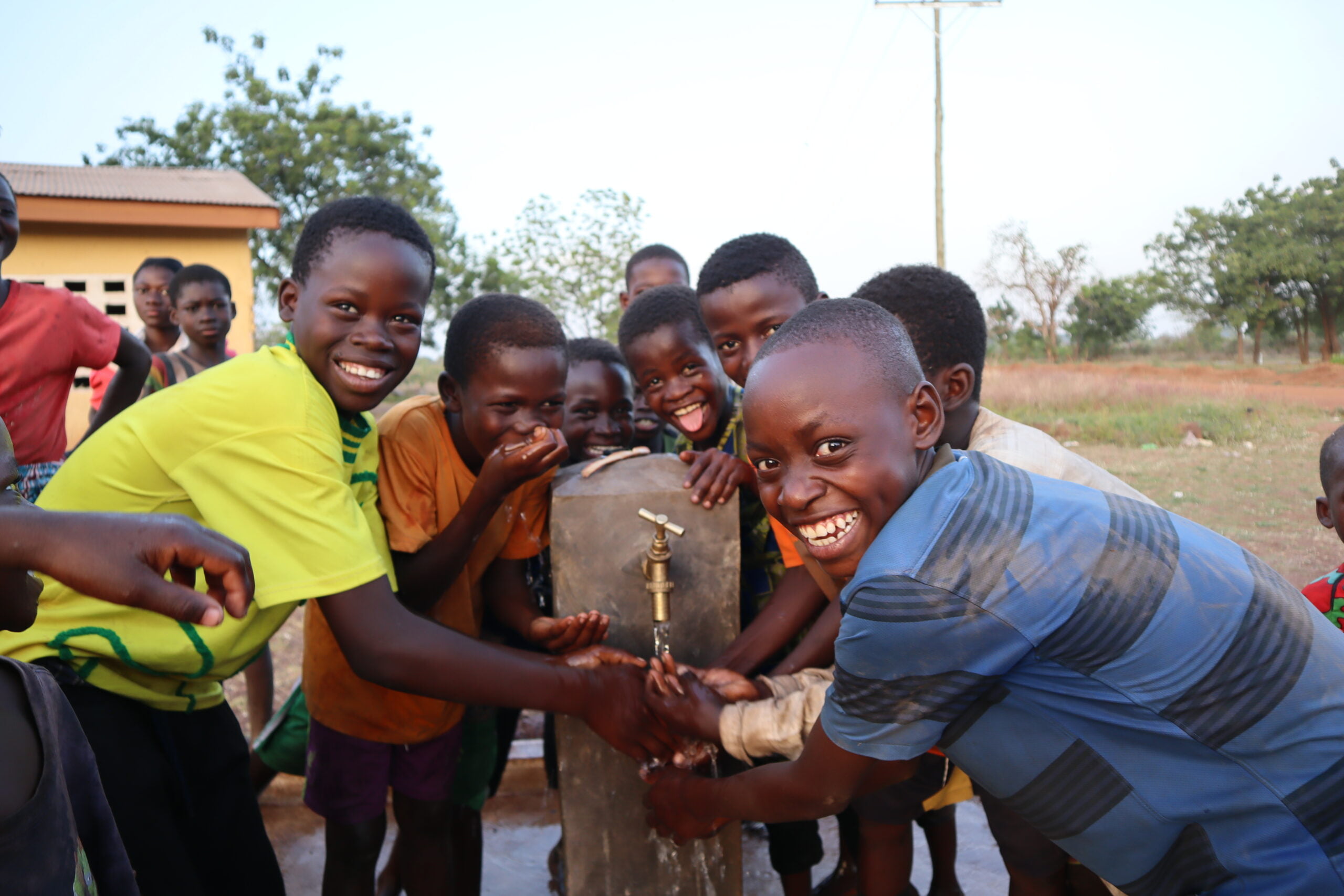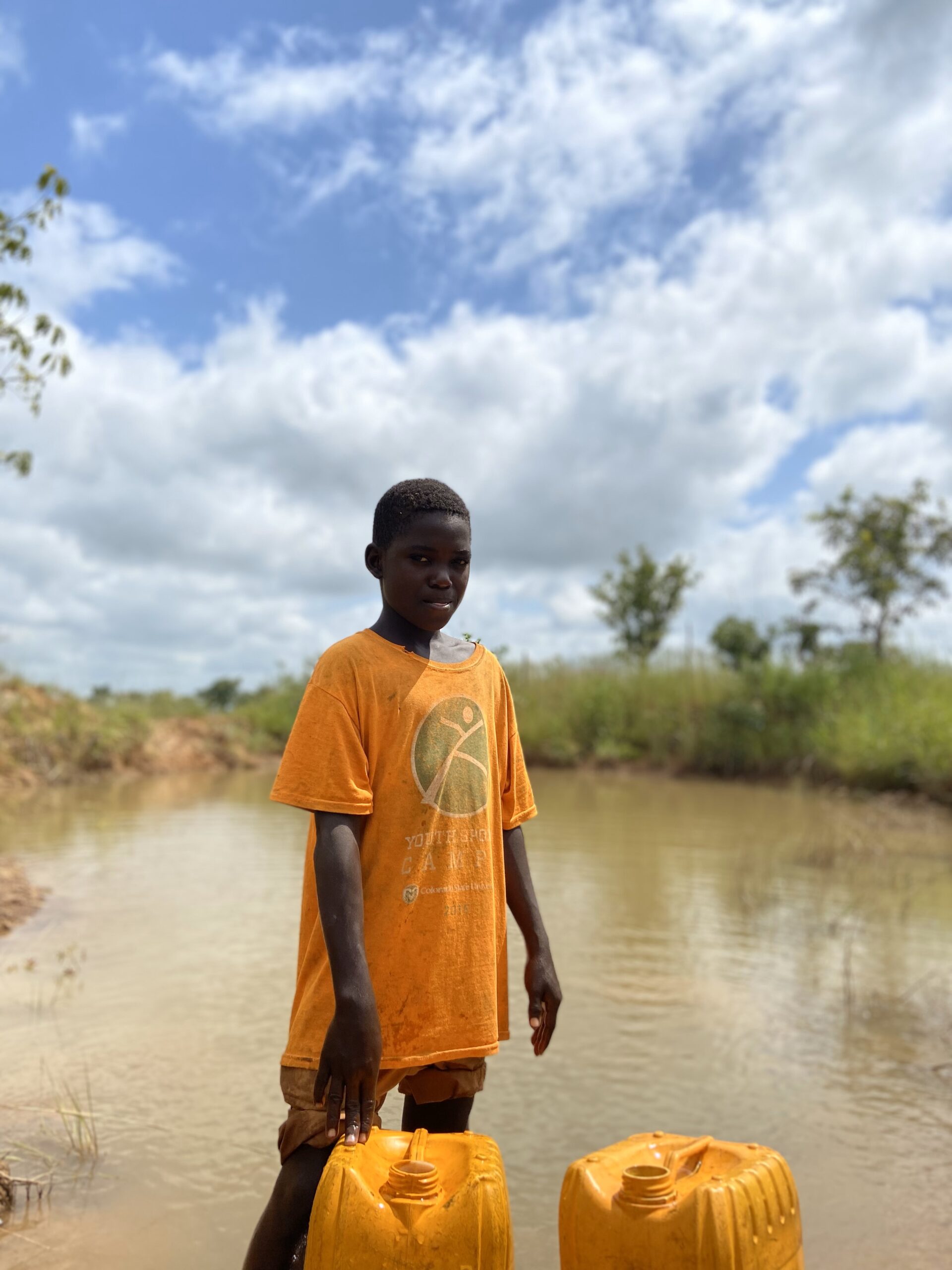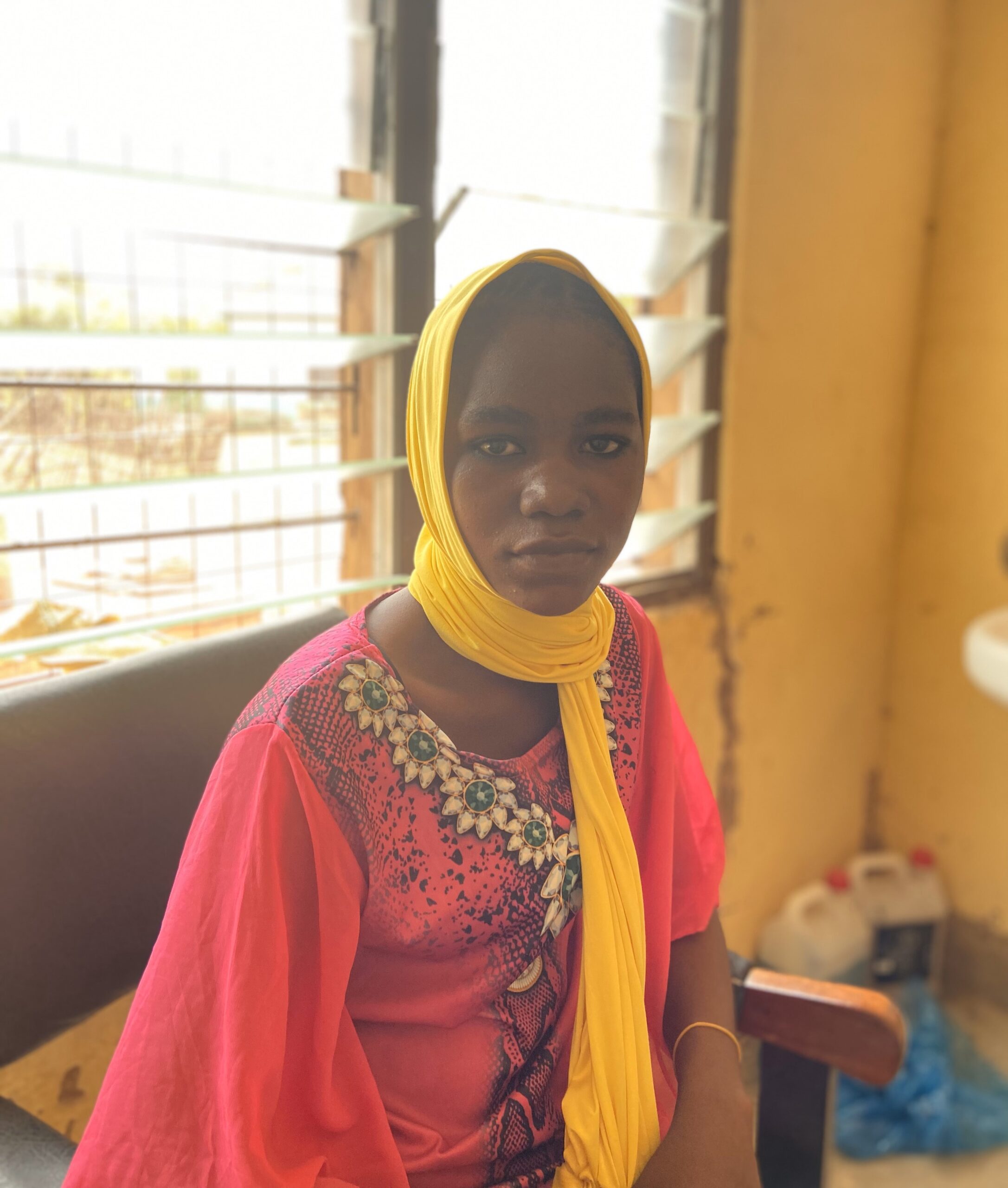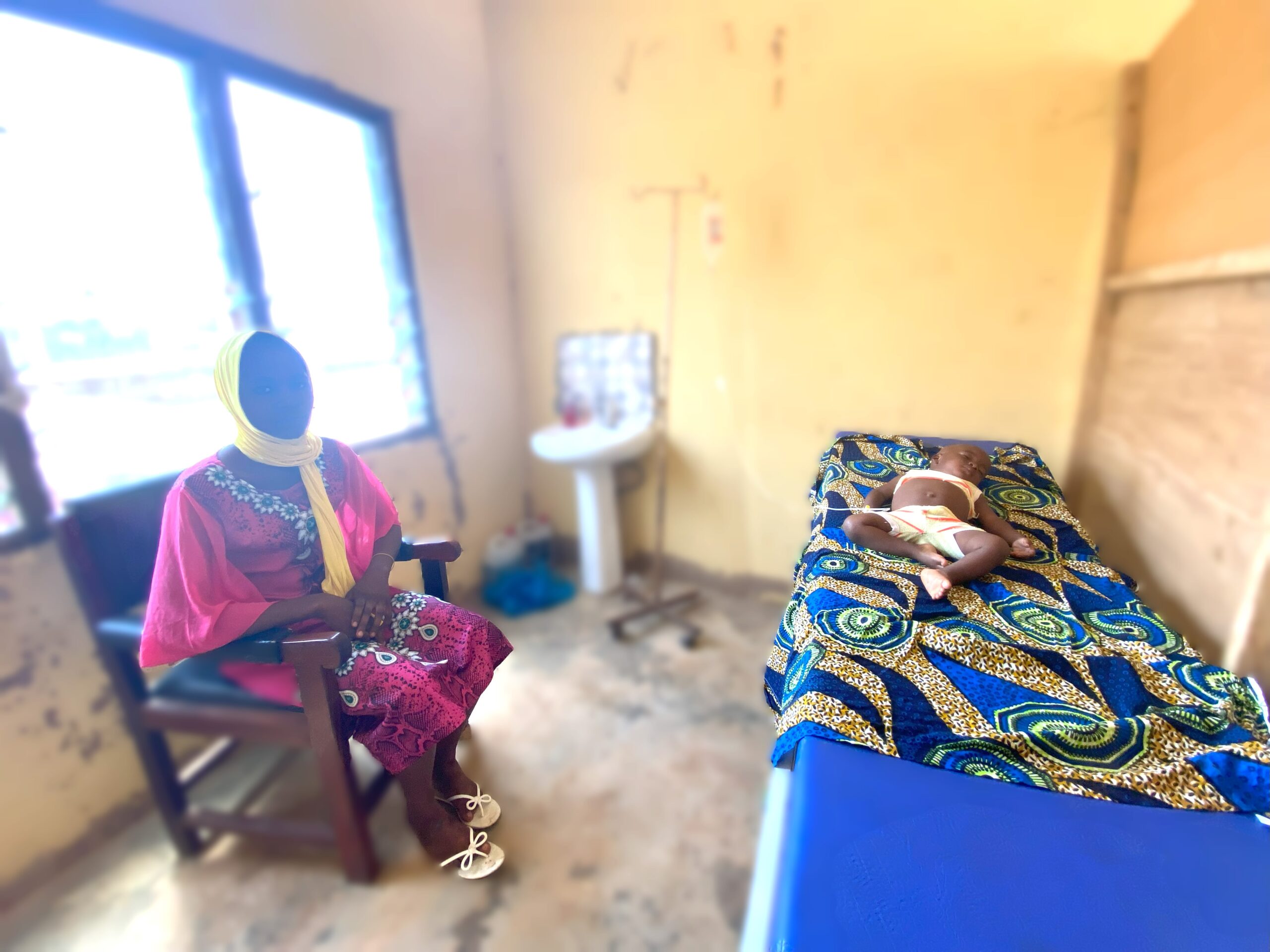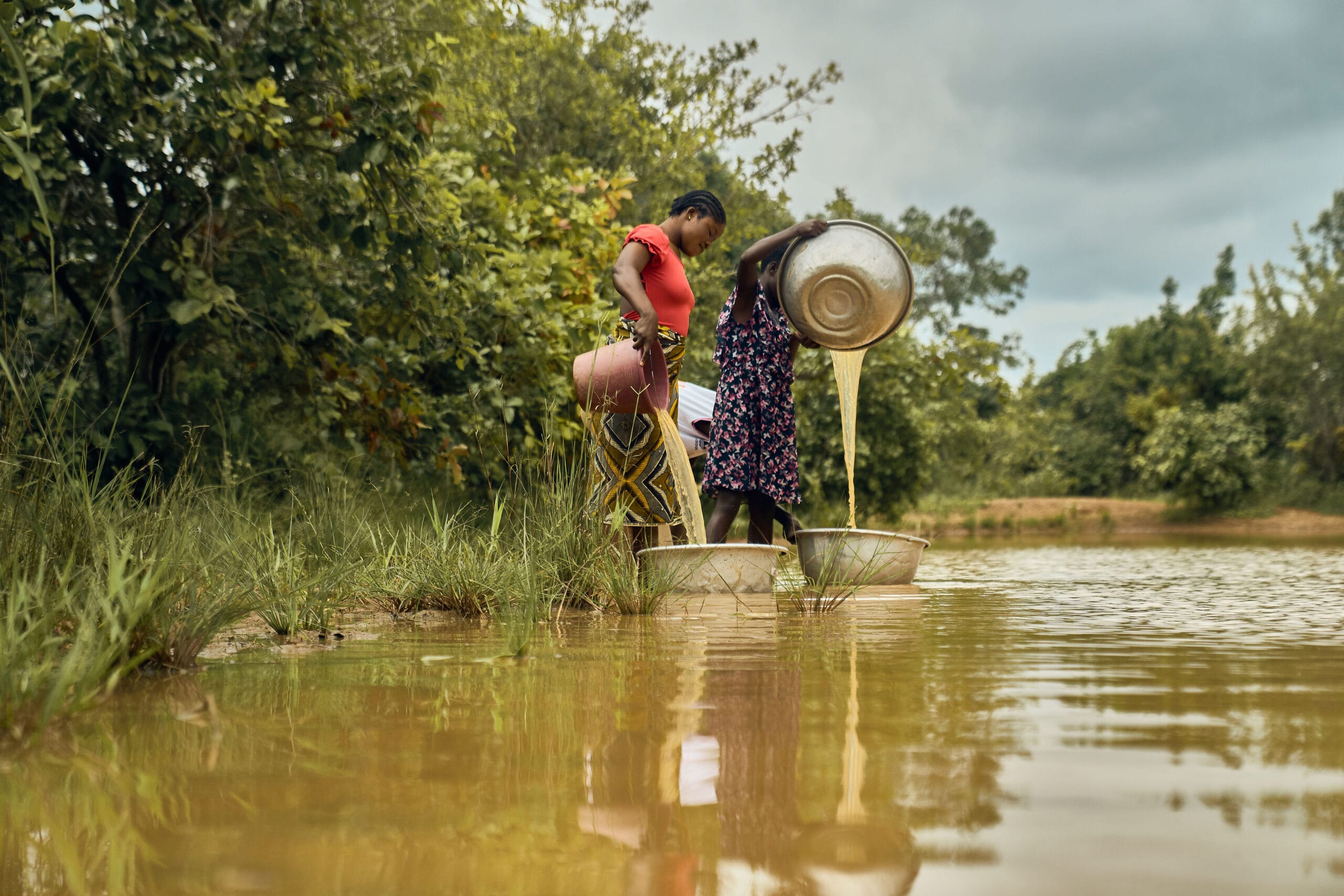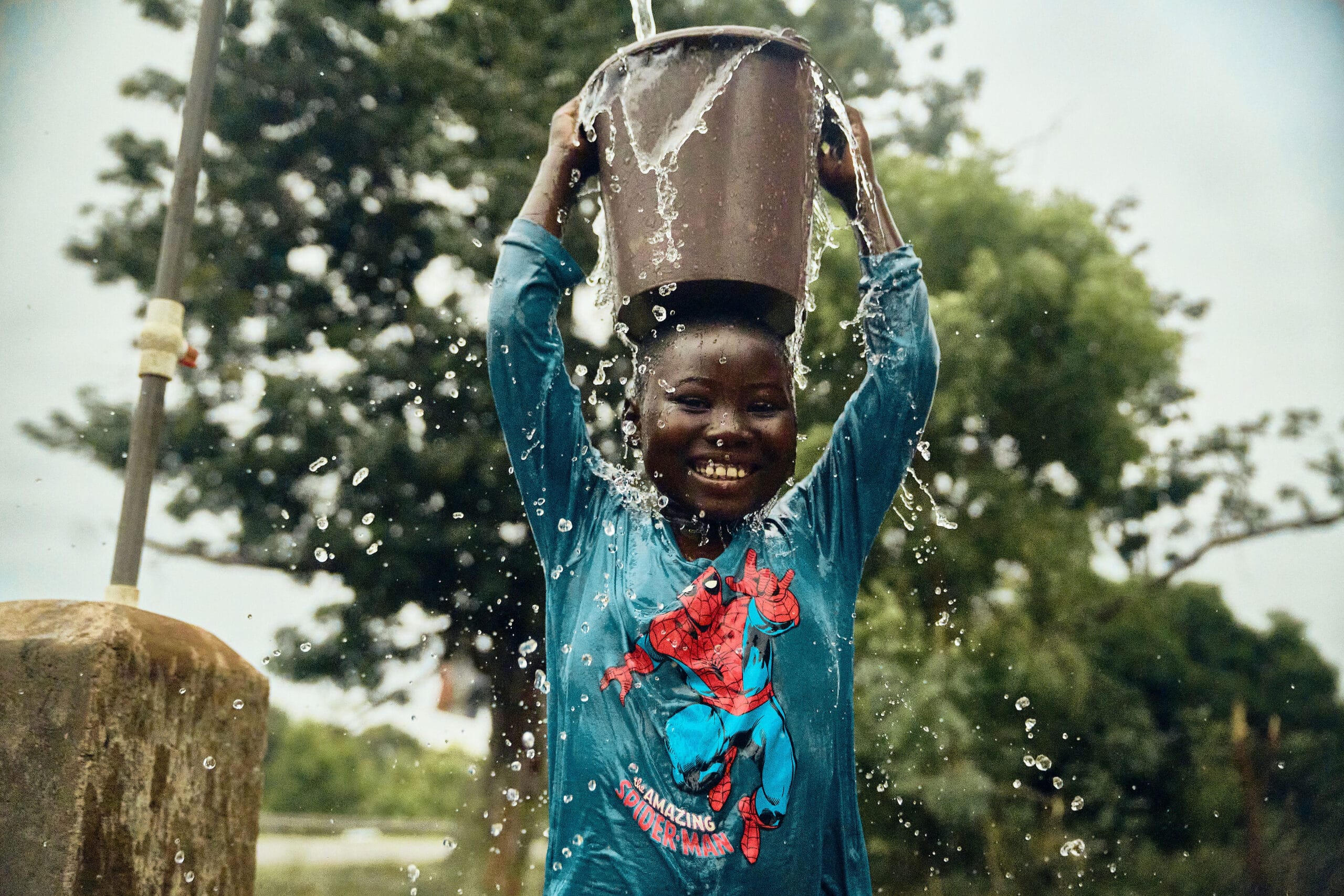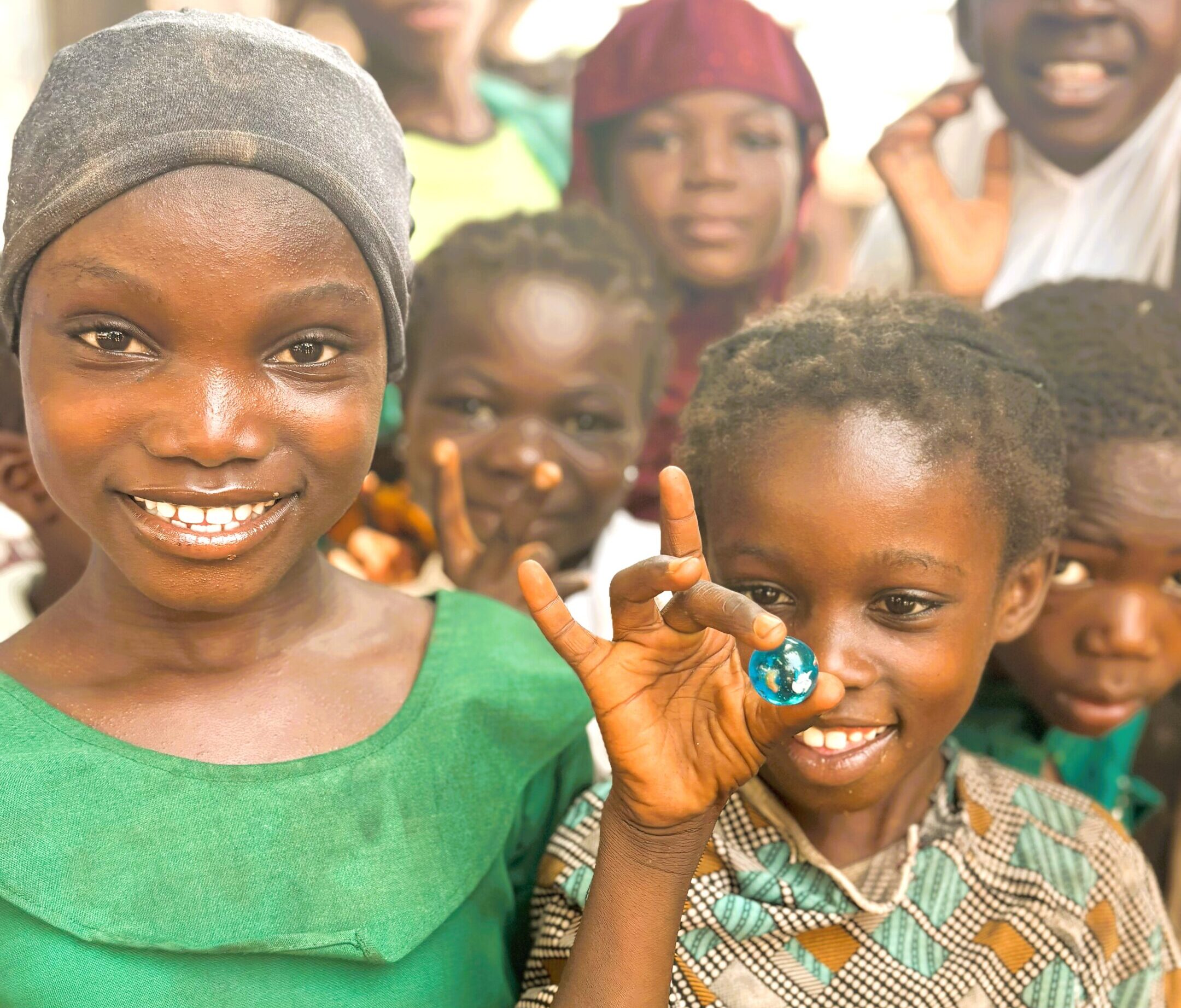Clean water is pivotal for rural health facilities
The partnership between Water for West Africa’s valued partners, Ghana Health Services, and local churches has profoundly transformed the healthcare landscape in Nimaago, Northern Ghana. The Nimaago Government Community Health Facility, a crucial healthcare hub serving six communities with a population of 1,804, lacked a reliable water source, compromising essential health services. Previously, they relied on a nearby dug-out pond, shared with animals, for water—posing severe health risks. What a great way to glorify the love of God by helping provide clean water.
However, installing a clean water source has revolutionized healthcare delivery in the clinic. The availability of clean water has become a lifeline, enabling the facility to provide proper hygiene for medical treatments, medication intake, and the delivery of newborns. The impact extends beyond the clinic walls; the sick can now take medication with clean water, ensuring better health outcomes for the community.
UNICEF emphasizes that access to clean water is pivotal for rural health facilities for several reasons:
- Improved Hygiene Practices: Clean water availability allows for better hygiene practices within healthcare settings. It enables staff and patients to wash their hands properly, reducing the risk of infections and the spread of diseases.
- Quality of Care: Clean water is essential for various medical procedures, sterilization of equipment, and maintaining a clean environment in healthcare facilities. Without it, the quality of care can significantly diminish, impacting patient outcomes.
- Preventing Waterborne Diseases: Contaminated water sources can lead to waterborne diseases. Having access to clean water ensures that patients do not contract additional illnesses during their stay at health clinics.
- Reducing Infant Mortality: Access to clean water and sanitation facilities in rural health facilities plays a crucial role in reducing infant mortality rates. It helps in providing safe birthing environments and postnatal care, ultimately contributing to better maternal and child health outcomes.
- Promoting Overall Community Health: Rural health facilities often serve as central points for healthcare in remote areas. When these facilities have access to clean water, it positively impacts the health and well-being of the entire community they serve.
In essence, clean water in rural health facilities is not only a fundamental necessity but a cornerstone for providing effective and comprehensive healthcare services, ensuring better health outcomes for communities in need.
Fostering the well-being and prosperity of a community
Water for West Africa (WfWA) is partnering with local organizations in Northern Ghana to help provide clean water and sanitation to improve the quality of life and provide hope for the future.
Betty, the Clinic Operations Manager, says that clean water has dramatically impacted the lives of the 1800 people in surrounding communities – walking great distances to seek rural healthcare.
Quality healthcare and access to clean water play crucial roles in fostering the well-being and prosperity of a community in various ways:
Quality healthcare and access to clean water play crucial roles in fostering the well-being and prosperity of a community in various ways:
- Educational Opportunities: Clean water availability in schools ensures a healthier environment for learning. Children are less likely to fall ill due to waterborne diseases, leading to improved school attendance and performance. Moreover, healthier children are better equipped to take advantage of educational opportunities, contributing to the community’s intellectual growth.
- Women Empowerment: Access to clean water can alleviate the burden on women and girls, who traditionally bear the responsibility of fetching water. With improved access, they can redirect their time and energy towards education, economic activities, or pursuing other opportunities, thereby empowering them to play a more active role in the community’s development.
- Community Development: Access to quality healthcare and clean water fosters community development by creating a healthier, more resilient population. It promotes stability and growth by reducing healthcare costs, preventing disease outbreaks, and enabling communities to invest resources in other critical development areas.
- Environmental Sustainability: Clean water access also supports environmental sustainability. When communities have clean water sources, there’s less pressure on natural resources, reducing the need for individuals to resort to unsafe practices like using contaminated water sources, which can harm the environment.
In summary, in partnership, WfWA is working with quality healthcare and clean water to create a foundation for a thriving community and promote good health, education, economic opportunities, gender equality, community resilience, and environmental sustainability. Collectively, these elements contribute to the overall well-being and advancement of the community as a whole. What a great opportunity, blessing, and hope for a new beginning for the community of Nimaago.
Committed to Serving
Please help provide life-saving clean water for those who have been displaced by conflict. You can help be part of the solution to this crisis in Northern Ghana by helping to drill five more wells in these communities. Our goal this giving season, we have a goal to raise $50,000 for ten communities in 2023.
